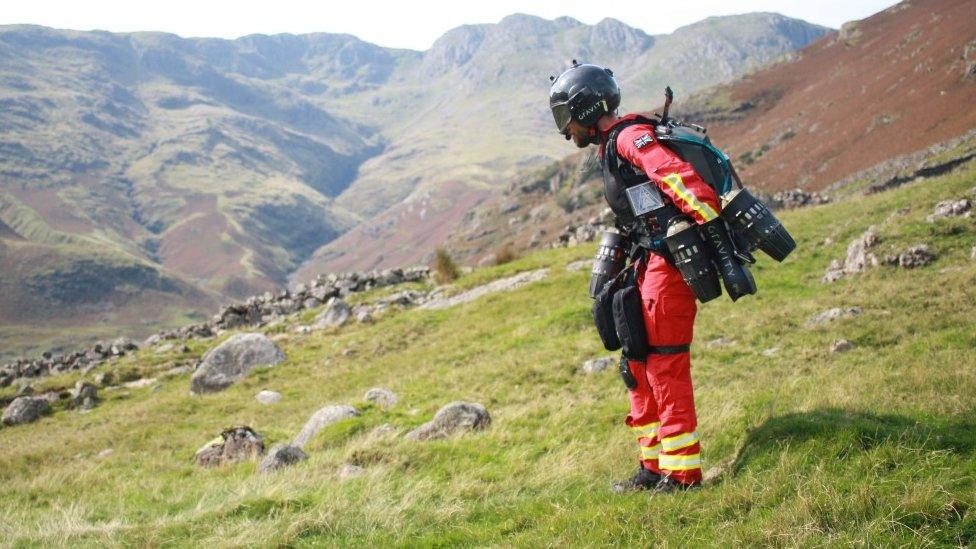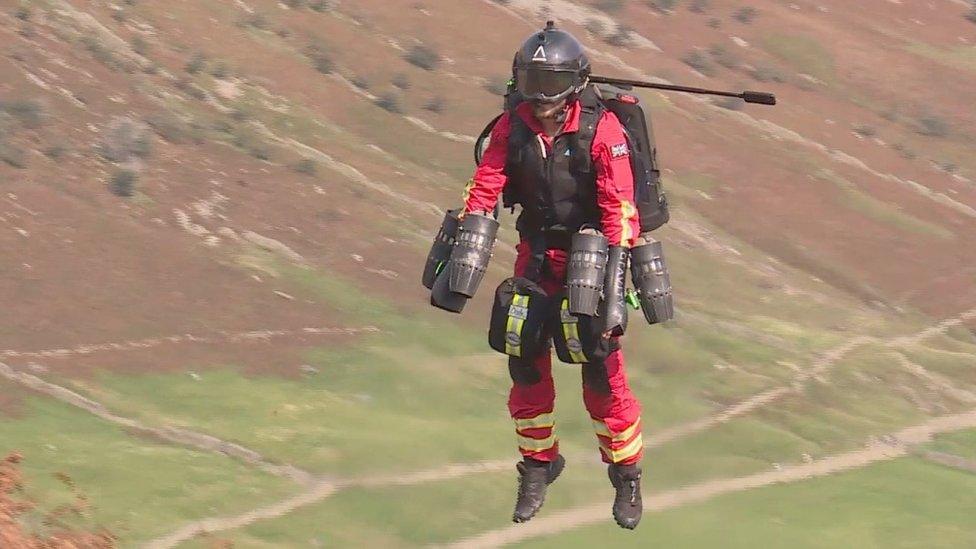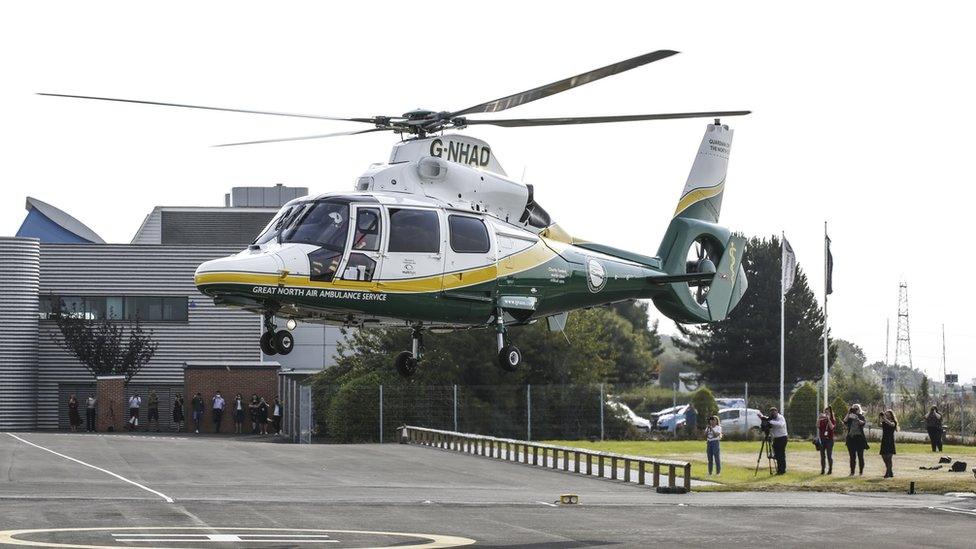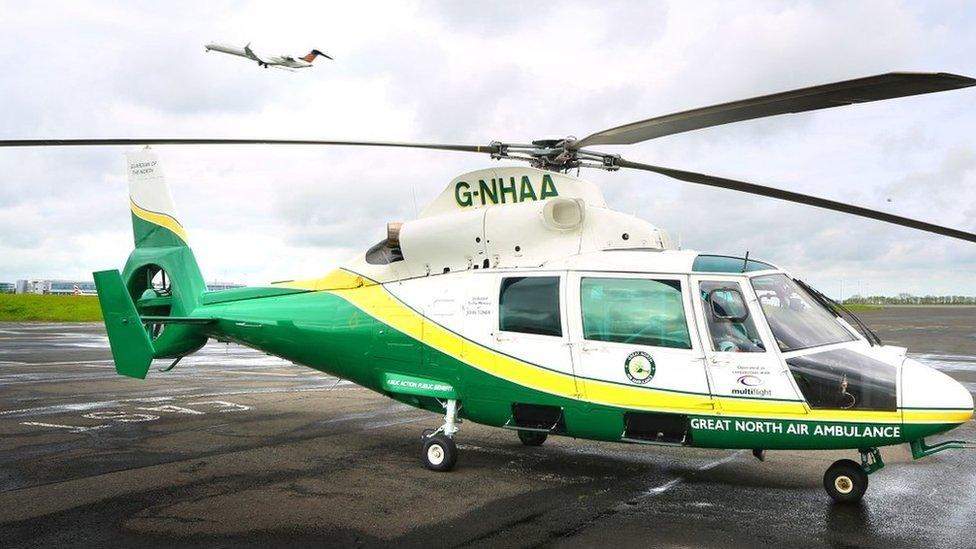Jet suit paramedic tested in the Lake District 'could save lives'
- Published
Watch the jet suit being tested in mountain terrain
A jet suit for paramedics which would see patients reached in minutes by a "flying" medic has been tested by the Great North Air Ambulance Service.
After a year of talks between GNAAS and Gravity Industries, a first test flight was carried out in the Lake District.
Andy Mawson, director of operations at GNAAS, came up with the idea and described seeing it as "awesome".
He said it meant a paramedic could "fly" to a fell top in 90 seconds rather than taking 30 minutes on foot.
Mr Mawson said: "There are dozens of patients every month within the complex but relatively small geographical footprint of the Lakes.
"We could see the need. What we didn't know for sure is how this would work in practice. Well we've seen it now and it is, quite honestly, awesome."
Mr Mawson said the exercise had demonstrated the huge potential of using jet suits to deliver critical care services.

The suit has two mini engines on each arm and one on the back
The test flight was carried out by Richard Browning, founder of Gravity Industries.
He said the suits had two mini engines on each arm and one on the back allowing the paramedic to control their movement just by moving their hands.
"The biggest advantage is its speed," Mr Mawson said.
"If the idea takes off, the flying paramedic will be armed with a medical kit, with strong pain relief for walkers who may have suffered fractures, and a defibrillator for those who may have suffered a heart attack.
"In a jet pack, what might have taken up to an hour to reach the patient may only take a few minutes, and that could mean the difference between life and death."

The kit means a paramedic can "fly" to the top of a fell in 90 seconds rather than go 30 minutes by foot
- Published11 August 2020

- Published31 March 2020
